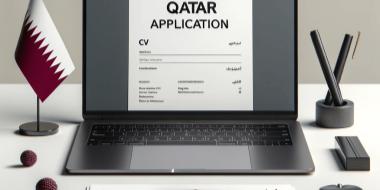Top Personal Skills for CV Success (with Examples)
Personal skills are growing in importance across the job market. More than ever, employers are seeking candidates with excellent personal skills, rather than focusing on technical skills and previous experience. If you want to achieve success with your job applications, it’s a good idea to learn the top personal skills for CVs. In this article, we discuss what are the most effective personal skills for your resume, with examples on how to showcase them.

Understanding Personal Skills
Personal skills are soft skills that show how well you work with other people, and how likely you are to fit into a company’s workplace culture. They showcase aspects of your character and personality that you can put to use in almost any work environment. These skills can affect how you build relationships, how you interact with clients, how you respond to conflict or adversity, and how well you fit into a team. Well-developed personal skills can help you achieve success in your career through fostering positive work relationships and contributing to collective objectives.
Studies suggest personal skills are becoming more crucial than ever in the modern world of work. Forbes has reported that 78% of job postings globally mention foundational soft skills such as interpersonal skills (1). According to a study by McKinsey, companies are increasingly focused on skill-building among employees, with soft, transferable skills being a key part of efforts to equip the workforce for new challenges (2).
Expert tip:
Use the job description to understand the key personal skills the employer is looking for, but remember to include a few unique personal skills in your CV. Think about the qualities only you can bring to the role, and add personal skills that reflect your personality and working style. This can help you stand out in a crowded field of applicants.
Highlighting Communication Skills on Your CV
Communication skills are one of the top personal skills to add to your CV. Almost every role requires communication skills, and your ability to show these on your CV is likely to be valued by employers. If you want to showcase your communication skills, use keywords like ‘communicate’, ‘present’, ‘liaise’, ‘collaborate’, ‘convey’, ‘network’ and ‘converse’ throughout your CV.
Communication skills can be written or verbal, and also include listening skills. Your CV itself is one of the best places to showcase your written communication skills. You can demonstrate verbal communication skills and networking skills on your resume by mentioning presentations, meetings you’ve chaired or networking conferences you’ve attended. Here are some resume examples of how to show verbal communication skills in your work experience section:
- ‘Presented to a group of 100 executives at a national sales networking conference.’
- ‘Liaised with account management team to ensure smooth customer relations with key clients.’
Showcasing Problem-Solving Abilities
The ability to think on your feet and address challenges head-on is always valuable. Showing employers that you have this skill will reassure them that you can take the ups and downs of work life in your stride. Think about how you’ve overcome challenges in your career to date, and particularly situations where you have figures and evidence to back up the impact you made. This could be recovering falling sales figures, increasing efficiencies or resolving customer complaints. Take a look at these examples of problem-solving abilities:
- ‘Responded to customer complaints in a polite and efficient manner, resulting in a 12% increase in customer satisfaction.’
- ‘Developed a new invoicing system to overcome issues with late payment, improving cash flow while maintaining customer relations.’
- ‘Responded to new environmental regulations by redesigning quality control systems, leading to a 26% reduction in waste.’
Demonstrating Teamwork and Collaboration
It’s rare to work completely on your own in any role, so teamwork is a key skill that most employers expect candidates to possess. Collaboration skills show that you can work in groups towards a common goal, whether internally or with external partners and clients. Teamwork skills incorporate communication, and the ability to deliver in a timely and efficient manner, understanding your role in the wider team.
Most resume formats provide plenty of opportunities for showcasing teamwork and collaboration. Your work experience section is the most obvious section to mention teamwork on CV templates, but you could also show it through hobbies or volunteer roles. Here are some sections from CV examples demonstrating teamwork and collaboration:
- ‘Collaborated with designers, web developers, research and marketing teams to deliver a new company website, increasing traffic by 56%.’
- ‘Volunteered at a food bank, working with 12 other volunteers to deliver 260 food packages per week to local families.’
Emphasising Adaptability and Flexibility
Nothing stands still for long in the world of work, so it’s crucial to show you’re adaptable and flexible to changing circumstances. Being adaptable means being open to new ideas and new ways of working, or adjusting to last-minute changes, expectations or demands.
Demonstrating adaptability and flexibility could include any examples where you’ve thrived despite being placed in challenging circumstances. Think of times when expectations have changed, such as shorter deadlines, increased pressure from management or unforeseen difficulties leading to changes in working patterns. Here are some examples that could feature in a resume or cover letter:
- ‘Adapted to rising interest rates by approaching top 10 lenders to offer bespoke mortgage solutions for high-net-worth clients.’
- ‘Adjusted key project deliverables in response to changing social media algorithms, delivering 22% higher engagement.’
Illustrating Leadership and Management Skills
The ability to demonstrate leadership skills for your CV can help your chances of success, even if you’re not applying for a management role. Leadership skills involve guiding a team towards specific goals and objectives, and empowering colleagues to achieve success. Management skills are slightly different from leadership, and reflect the specific ability to manage colleagues, dealing with the challenges that can occur in the workplace and fostering a positive team environment.
Here are some examples of leadership skills you could use for your resume:
- ‘Managed a team of six business development colleagues to exceed sales targets by £950,000, creating a sense of healthy competition while working towards collective goals.’
- ‘Supervised the transition of a team of 30 employees to a remote-first working environment, maintaining high staff retention rates and experiencing an increase in staff satisfaction (from 3.9 to 4.2 out of 5).’
Featuring Time Management and Organisational Skills
In the stressful and busy world of work, time management and organisation are essential skills to help you get through the workday. They not only ensure you can deliver your work on time and on budget, but they also mean you can be a more effective colleague and reduce your stress levels. Effective time managers track their tasks efficiently, organise their workload and understand how they contribute to wider team efficiency.
You can demonstrate your time management and organisational skills on your CV by drawing on these examples:
- ‘Produced project plans for complex, multi-million pound construction developments, detailing deadlines, budgets and key responsibilities for a team of 50 construction employees.’
- ‘Delivered film and multimedia projects to tight deadlines, providing flexibility to client needs and prioritising my workload to ensure high levels of customer satisfaction.’
Showcasing Emotional Intelligence
Emotional intelligence is a valuable workplace trait, as it involves the ability to understand and manage your emotions, as well as those of others. Using your emotional intelligence at work means remaining rational, self-aware, even-keeled and in-control at all times. It also means understanding other people’s emotions, showing empathy and compassion and adjusting where necessary to ensure continued team harmony.
These examples can help you show emotional intelligence in your own CV:
- ‘Line-managed a team of three junior employees, creating an open and supportive work environment for them to raise concerns and working together to solve problems.’
- ‘Provided bespoke training and career development to graduate jobseekers, understanding their unique circumstances and suggesting solutions to increase their employability.’
Highlighting Critical Thinking and Analytical Skills
Critical thinking is linked to problem-solving, and involves the ability to come up with new ways of thinking and solutions to everyday workplace challenges. Being a critical thinker means understanding and identifying that there might be better ways of doing something than the established norm. Analytical skills are also highly desirable, and showcase the ability to understand a problem from all sides, unpack data and explain complex concepts and ideas.
If you’re hoping to demonstrate your analytical and critical thinking skills on your resume, take a look at these examples:
- ‘Evaluated company CRM system and developed a new suite of customer management applications to respond to the specific needs of the business.’
- ‘Analysed complex statistical datasets and developed compelling narratives to inform key policy decisions for major clients in local and national government.’
"Well-developed personal skills can help you achieve success in your career through fostering positive work relationships and contributing to collective objectives."
How to Incorporate Personal Skills in a Cover Letter
Your cover letter is the ideal place to emphasise your personal skills, adding to the interpersonal skills on your CV, elaborating and offering further examples for greater impact. While it’s important to keep your cover letter brief and to-the-point, there are opportunities to highlight several key skills and experiences that can help you stand out from other applicants.
Use keywords from the job description to show the employer you have the skills they’re looking for, and tailor your skills to the unique requirements of every role. Pick out a couple of key interpersonal skills that are particularly relevant to the job. Where possible, support your credentials by including feedback from managers or clients, the outcomes of appraisals and any facts or figures that help to prove your skills. These could be sales figures, key performance indicators or even staff and customer satisfaction scores.
Just remember to be concise and clearly explain how your personal skills make you the ideal candidate for the role. Cover letter templates can help you to write an effective cover letter to support your applications, while sticking to an established structure to ensure your letter remains as brief and relevant as possible.
Key Takeaways for Personal Skills on a CV
Almost any job you apply for will require a certain degree of personal skills. Pay attention to the job description and add any of your personal skills that match those listed, offering evidence that shows the impact they’ve had on your career.
Jobseeker’s CV tools and resources can help you showcase your personal skills on your CV. Sign up today and follow the easy steps to create a CV that complements your personal and professional skills. You can also find CV articles with various tips on how to create a winning CV. In addition, our cover letter articles can help you draft a cover letter that really makes an impact with employers.
Sources:
(1) Forbes: Why Soft Skills Are More In Demand Than Ever
(2) McKinsey: Building workforce skills at scale to thrive during—and after—the COVID-19 crisis



